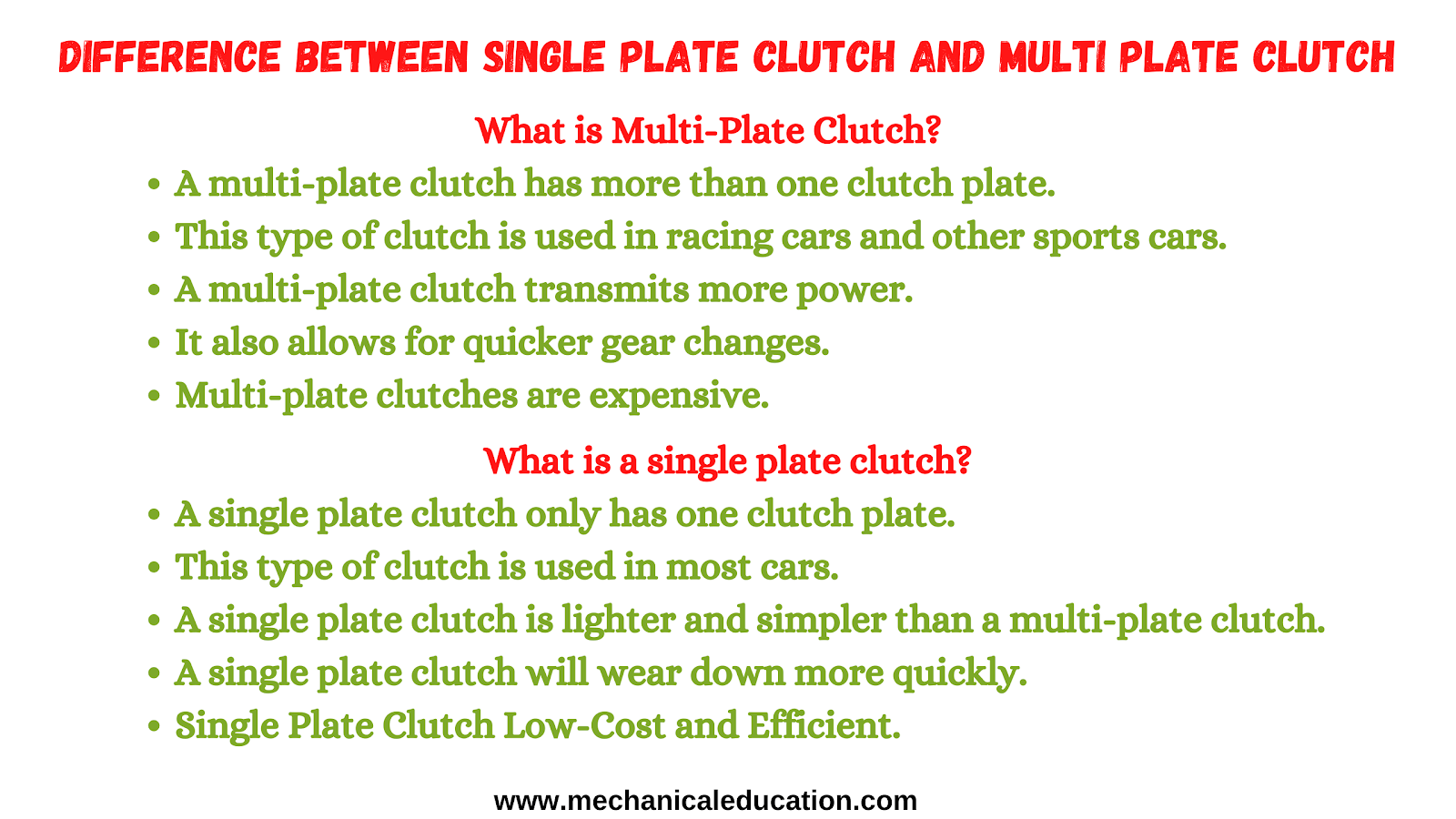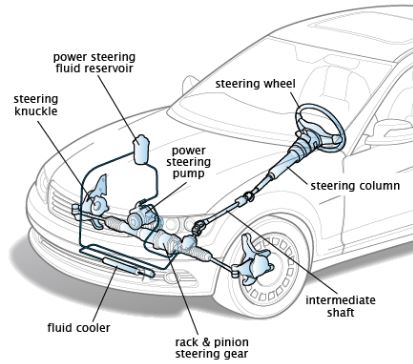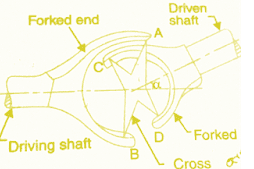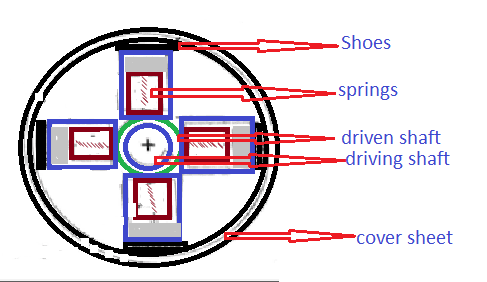Difference between Single Plate Clutch and Multi-Plate Clutch:
What is Multi-Plate Clutch?
A multi-plate clutch uses multiple discs in a series or parallel arrangement to transmit power from the engine to the transmission.
What is a single plate clutch?
A single plate clutch uses one large disc to frictionally connect and transmit power from the engine to the transmission.
Difference between Single Plate Clutch and Multi Plate Clutch are as follows:
Multi-Plate Clutch:
- A multi-plate clutch has more than one clutch plate.
- This type of clutch is used in racing cars and other sports cars.
- A multi-plate clutch transmits more power.
- It also allows for quicker gear changes.
- Multi-plate clutches are expensive.
- Multi-plate clutches tend to distribute the wear over multiple surfaces, which increases the life of the clutch.
- Multi-plate clutches are also better at transmitting torque, making them ideal for high-performance cars.
Single Plate Clutch:
- A single plate clutch only has one clutch plate.
- This type of clutch is used in most cars.
- A single plate clutch is lighter and simpler than a multi-plate clutch.
- A single plate clutch will wear down more quickly.
- Single Plate Clutch Low-Cost and Efficient.
Different between Single Plate Clutch and Multi-Plate Clutch:
- A single plate clutch uses a friction disc to transfer power from the engine to the transmission. A multi-plate clutch uses several discs (usually two or three) that are stacked on top of each other and rotated together.
- Multi-plate clutches are complex to manufacture than single plate clutches.
- A multi-plate clutch can handle more torque than a single plate clutch.
- Multi-plate clutches offer superior performance and longevity because they can dissipate heat more effectively than single plate clutch.
- Multi-plate clutches also tend to be smoother than a single plate clutch.
- Multiple plate clutch has more power-transferring capabilities than single plate clutch.
- Multiple plates can grip the input shaft more tightly, which prevents slippage. Multi-plate clutches are also less likely to slip if they become wet compared to a single plate clutch.



